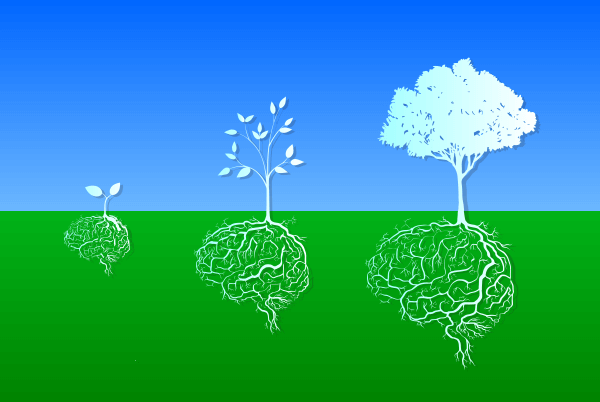Table of Contents
- Balanced Nutrition
- Regular Physical Activity
- Adequate Sleep
- Stress Management
- Healthy Relationships
- Work-Life Balance
- Environmental Consciousness
- Continuous Learning
- Avoiding Harmful Habits
- Conclusion
1. Balanced Nutrition
A balanced diet is a foundational pillar of a healthy lifestyle. What we consume directly impacts our energy levels, immune function, and overall health. Incorporating a variety of fruits, vegetables, whole grains, and lean proteins into daily meals ensures that the body receives essential nutrients needed for growth and repair. By focusing on whole foods and limiting the intake of processed foods, sugars, and unhealthy fats, individuals can maintain a healthy weight and lower their risk of chronic diseases like heart disease, diabetes, and obesity.
Hydration is also a critical element of nutrition. Drinking sufficient water helps maintain bodily functions, regulate body temperature, and support digestion. Including nutrient-dense foods like leafy greens, nuts, seeds, and healthy fats, such as olive oil and avocados, promotes heart health, brain function, and skin vitality. Overall, balanced nutrition is crucial for sustaining energy, mental clarity, and physical vitality.

2. Regular Physical Activity
Physical activity is integral to maintaining a healthy body and mind. Exercise is essential for improving cardiovascular health, building muscle strength, and enhancing flexibility. Whether it's a brisk walk, jogging, cycling, or participating in a sport, regular movement supports weight management, promotes better sleep, and strengthens the immune system.
Aerobic exercises, such as running or swimming, improve lung capacity and increase endurance, while strength training helps build muscle mass and boost metabolism. Physical activity also triggers the release of endorphins, the body's natural mood enhancers, helping reduce stress and improve mental well-being. It’s important to aim for at least 150 minutes of moderate-intensity exercise or 75 minutes of vigorous-intensity exercise each week, as recommended by health experts.
3. Adequate Sleep
Sleep is often underestimated but is an essential component of a healthy lifestyle. The body needs quality rest to repair itself, rejuvenate energy, and regulate vital functions such as hormone levels and immune responses. Establishing a consistent sleep schedule and creating a restful environment contribute to better sleep quality. Most adults need 7-9 hours of sleep per night to feel rested and maintain cognitive function, mood stability, and physical health.
A sleep-friendly environment includes a dark, quiet, and cool room. Limiting screen time before bed, avoiding caffeine late in the day, and practicing relaxation techniques like meditation can promote a deeper, more restorative sleep. Quality sleep is crucial for maintaining mental clarity, emotional stability, and overall well-being.

4. Stress Management
Chronic stress can have detrimental effects on both physical and mental health. Long-term stress has been linked to increased risks of heart disease, depression, and autoimmune disorders. Managing stress effectively is crucial for maintaining a healthy lifestyle. Incorporating relaxation practices such as deep breathing, mindfulness meditation, or yoga can help calm the mind and reduce the negative impact of stress on the body.
Taking time for self-care, engaging in activities that bring joy, and practicing gratitude can also contribute to emotional resilience and mental clarity. Regular breaks throughout the day, time spent in nature, and social support from loved ones all play a vital role in stress reduction. By incorporating stress management techniques into daily life, individuals can enhance their overall health and well-being.

5. Healthy Relationships
Cultivating positive relationships is a vital aspect of emotional well-being. Having strong connections with family, friends, and community members provides emotional support, reduces feelings of isolation, and contributes to happiness. Social interactions promote a sense of belonging and offer opportunities for meaningful connections, which are essential for mental and emotional health.
It’s important to nurture healthy communication, empathy, and trust within relationships. Building a support system that provides encouragement, understanding, and comfort during difficult times can boost emotional resilience and increase life satisfaction. Engaging in social activities, volunteering, or participating in community events fosters a sense of purpose and enhances emotional wellness.

6. Work-Life Balance
A healthy lifestyle requires balancing work, personal life, and relaxation. Constantly focusing on work without allocating time for self-care and leisure can lead to burnout, stress, and a decrease in overall well-being. Setting boundaries between professional and personal life and dedicating time to hobbies, rest, and relaxation is essential for life satisfaction.
Time management skills, setting realistic goals, and prioritizing tasks can help prevent overwhelm. It’s important to schedule regular breaks throughout the workday, engage in activities that recharge your energy, and create space for quality time with family and friends. By achieving a healthy work-life balance, individuals can avoid stress and improve their overall quality of life.

7. Environmental Consciousness
Being mindful of the environment is also an essential part of a healthy lifestyle. Adopting eco-friendly habits, such as using sustainable products, reducing waste, and conserving energy, not only helps the planet but also promotes a sense of responsibility and well-being. Environmental consciousness contributes to both personal health and the greater good.
Making sustainable choices, such as opting for reusable items, supporting eco-conscious businesses, and reducing carbon footprints, can enhance your connection to the world around you. By embracing eco-friendly practices, individuals can contribute to the preservation of nature while supporting their own physical and mental health.

8. Continuous Learning
Continual self-improvement and learning are essential to keeping the mind sharp and fostering a fulfilling life. Engaging in activities that stimulate the brain, such as reading, solving puzzles, learning new skills, or pursuing hobbies, contributes to cognitive health and personal development. Lifelong learning encourages curiosity, mental agility, and a sense of accomplishment.
Learning new things can also provide a sense of fulfillment and purpose, which is essential for long-term happiness. Whether through formal education, creative endeavors, or self-directed learning, continually challenging yourself fosters growth and enhances your overall life satisfaction.

9. Avoiding Harmful Habits
Avoiding harmful habits, such as smoking, excessive alcohol consumption, or drug use, is crucial for maintaining a healthy lifestyle. These behaviors can significantly impact physical health, increasing the risk of chronic diseases, such as lung cancer, liver disease, and heart problems. Moderation is key when it comes to substances like alcohol and caffeine.
Adopting healthy habits, such as practicing mindfulness, exercising regularly, and avoiding harmful substances, supports long-term well-being and quality of life. By steering clear of these detrimental behaviors, individuals can safeguard their health and enjoy a better quality of life.
 10. Conclusion
10. Conclusion
Living a healthy lifestyle involves a holistic approach that integrates physical, mental, and emotional well-being. By focusing on balanced nutrition, regular exercise, adequate sleep, stress management, and building meaningful relationships, individuals can achieve a balanced and fulfilling life. Consistent efforts to maintain a healthy lifestyle lead to long-term happiness, vitality, and overall life satisfaction. Making small, intentional changes today can create lasting benefits for a healthier tomorrow.


You must be logged in to post a comment.